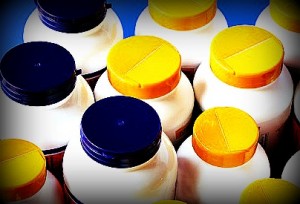Fourteen state attorneys general have asked Congress to launch an investigation of the herbal supplement industry, Reuters reports. The Food and Drug Administration should be given more oversight of herbal supplements, the attorneys general said in a letter to the chairmen of congressional subcommittees on product safety and health.
The letter was signed by attorneys general from Connecticut, District of Columbia, Hawaii, Idaho, Indiana, Iowa, Kentucky, Massachusetts, Mississippi, New Hampshire, New York, Northern Mariana Islands, Pennsylvania and Rhode Island.
Last month GNC agreed to institute new testing procedures on its herbal products, after the New York State Attorney General’s office accused the company and other major retailers of selling adulterated and/or mislabeled dietary supplements.
The company is the nation’s largest specialty retailer of dietary supplements. The new testing procedures will greatly exceed quality controls required by federal law.
In February, New York State Attorney General Eric Schneiderman accused GNC, Target, Walgreens and Walmart of selling fraudulent or contaminated herbal supplements. GNC said its herbal products have passed several rigorous quality control tests. Over the next 18 months, the company will add additional quality control measures. The new tests will use advanced DNA methods to authenticate the plants used in its store-brand herbal supplements. The company will extensively test for common allergens such as soy, tree nuts and wheat.
New York State authorities said they had conducted tests on products including echinacea, ginseng and St. John’s wort. They found many products did not contain any of the herbs listed on the label. In many cases, pills labeled medicinal herbs mostly consisted of powdered rice, houseplants and asparagus.
Some pills contained substances that could be dangerous for people with allergies. For example, one product sold at Walmart as ginko biloba contained wheat, even though the label said the product contained no wheat or gluten.
Published
April 2015
 Get Support
Get Support

